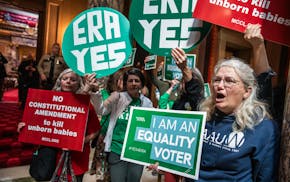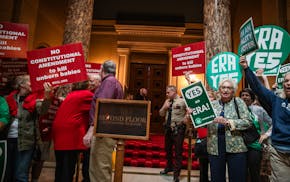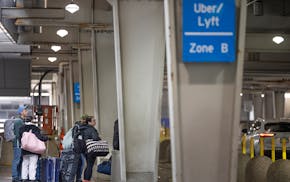"For a little reflection will show what enormous social changes would result from a gradual disappearance of a rate of return on accumulated wealth ... this state of affairs would ... mean ... the euthanasia of the cumulative oppressive power of the capitalist to exploit the scarcity-value of capital ... so that the functionless investor will no longer receive a bonus ..."
-- John Maynard Keynes, "The General Theory of Employment, Interest and Money"
• • •
Well, no need to worry about those wealthy investors sitting back and clipping coupons. With interest rates still at historic lows, monetary policy continues to assault the saver and reward the debtor. Great, just what the country needs.
Save for a brief interlude during the early 1980s, when Ronald Reagan stood by Federal Reserve chief Paul Volcker, who allowed interest rates to rise, both parties have embraced the Keynesian nonsense of easy money and artificially low rates of interest.
It was Richard Nixon who in 1971 uttered the famous line "I am now a Keynesian in economics" -- and the dollar since has lost more than 80 percent of its purchasing power. Of course, you don't have to go back to the '70s to see the damage Keynes has wrought. The current generation of Americans has suffered through a more recent series of bubbles in tech stocks, commodities and, of course, housing -- all largely a product of central-bank-induced malinvestment.
But instead of liquidating the run-up in debt that financed the mess, the Fed keeps its foot on the gas (QE3 is just around the corner) as long as the speculators scream loud enough. Think of it, housing prices have been falling due to an overabundance of supply, so what are we doing? Financing more home construction with record-low interest rates.
And now comes a report from the New York Fed conceding that the S&P 500 would be 50 percent lower had it not been for the central bank pumping up equities.
Unfortunately, reflating the bubble only puts off an even greater day of reckoning as more fiat money is poured into "investments" that remain viable only so long as the fiscal and monetary subsidies continue. That's why so many economists fear an economic cliff next year when the realities of reckless spending may finally force a modicum of restraint.
And this time, the Bernanke "put" will be of no use. The economy is already slowing due to the albatross of debt and asset deterioration that piled up on balance sheets during the last round of "stimulus" spending. All Washington has really done is to jump-start consumption at the expense of savings and investment -- thus crowding out capital markets either through deficit-financed spending or by monetizing the debt and devaluing the dollar.
Former speaker Nancy Pelosi epitomized the policy when she said that increasing unemployment checks would actually be good for the economy. No doubt she was channeling Keynes, who long ago proclaimed something just as silly: "to 'dig holes in the ground' ... will increase, not only employment, but the real national dividend of useful goods and services ... when once we understand the influences upon which effective demand depends ..."
It is this central fallacy of government-created "demand" that lies at the root of our fiscal problems. Democratic partisan Paul Krugman still spews such rubbish, but his errant predictions (and they are legion) attest to the reality that you can only increase "purchasing power" if you first increase "production." How else would you derive your income?
Merely throwing $2 trillion worth of bond purchases into the money supply does nothing for the nation's productive capacity. Lenders are still sitting on cash (why make risky loans at these rates?) due to the uncertainty over new taxes and regulations while the politicians continue to finance massive deficits with near-zero interest rates.
But monetary policy lags, so the damage may have already been done. Once the dollars start to circulate faster than labor and capital can (or are willing to) be deployed, the price levels will spike and the only solution left will be the one everyone is trying to avoid -- pay down the debt by slashing federal spending.
-------------------------
Jason Lewis is a nationally syndicated talk-show host based in Minneapolis-St. Paul and is the author of "Power Divided is Power Checked: The Argument for States' Rights" from Bascom Hill Publishing. He can be heard locally from 5 to 8 p.m. on NewsTalk Radio, 1130-AM, and at jasonlewisshow.com.

Divestment is easier chanted than done
Pass guardrails for HCMC governance changes

Minnesota needs an ERA that includes gender and reproductive freedom

Legislature must clarify sex, gender before putting an ERA before Minnesota voters

